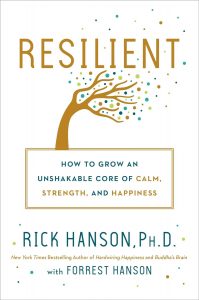Motivation – What are you Focused on?
In my work with attorneys and small business owners, I often hear the question, “How can I motivate myself?” Most attorneys (and others) are very effectively motivated by external deadlines, but how do we motivate ourselves?
This is the question that arises when you want to do something (as opposed to “have to”), but you don’t do it. Many people call this “procrastination”: “If I only knew what motivates me/how to motivate myself, then I would do those things that I say are important to me. I would light a fire under myself. I would not procrastinate.”
There are various ways to view motivation. This month I will give you one way to view it – from an NLP (neuro-linguistic programming) perspective.
In NLP, how we function falls into certain “meta-programs.” NLP uses the term ‘meta-programs’ specifically to indicate general, pervasive and usually habitual patterns used by an individual across a wide range of situations. Of these, I will consider only one this month – the one that my clients have had the most success applying to understand themselves and to change their behavior. This meta-program asks if, and to what extent, you are motivated by moving toward something or by moving away from something, as a general pattern.
In this Meta Program, a person’s attention is habitually directed either toward what they want or away from what they don’t want. All people have an innate tendency to focus more on what they want or on what they do not want as a way to motivate themselves. There is a spectrum and very few people will be entirely motivated by thinking about what they do want or what they do not want. It will be a combination to some extent. What is valuable is to (1) learn which you do more often; and (2) learn to consciously change your approach if it is not working for you.
The Test – Use the following examples to see where you fall on the toward/away-from continuum:
1. You have recently come to realize that you are not working with what might be called “A – level” clients. You want to improve the caliber of clients you attract and who retain you. Do you think most about the types of people you want to bring in – who they are, how much money they make, what their needs are? (Toward.) Or do you think more about the clients you have that you want to get rid of – how much they call you, that they don’t pay on time, that their cases are not interesting to you? (Away-from.)
2. You decide you want to improve your time management skills. Do you think about how much better things will be when you are managing your time well – your files will be organized, you will go home to dinner on time, you will feel less stressed? (Toward.) Or do you think about how bad it is – the feeling that you can never get out from under, that maybe you are in the wrong line of work, that you don’t get to see your kids every day? (Away-from.)
3. Think of something you want right now. Imagine taking steps to get it. Then notice if your mind goes more in the direction of how it will be when you have it, or of how terrible things are now.
When we are used to focusing exclusively (or mainly) on what we do not want as a way to motivate ourselves there are various problems may arise.
First, when a person is in a state of having a problem, it is common that they will think about and express themselves, in terms of what they do not want. They don’t want the problem. However, when we are focused too intently on what we do not want, when asked, “What do you want instead?” a frequent answer is, “Well, I don’t want this, and I definitely don’t want that, and I know I don’t want that other thing,” etc.
When it is pointed out to the person that these are all examples of what is not wanted, rather than what is wanted, and the question is then repeated, “What is it that you do want?” the most common answer is a pause, followed by, “I don’t know.” Because when we focus habitually on what we don’t want, we find it hard to determine what we do want.
When we think about what we want using an “Away-From” Meta Program — habitually, reflexively and unconsciously – we automatically present to our awareness something negative so we can move away from it. It is designed to provide motivation. Often, when people set out to lose weight, for example, they motivate themselves to take action by thinking about their lack of energy, that their clothes don’t fit, how bad they think they look. But when we think about what we don’t want, we filter from our perception and thinking the positive which we would want.
A further and important problem with gaining motivation from what we do NOT want is that if a person views their goal in terms of what they want to move away-from, once the things they want to avoid have been avoided, there’s no more goal. An example would be a person whose goal is to “not be poor.” If they see themselves as poor, they are motivated to get away from that and take action to make money. But, as soon as the person evaluates that they are not poor, they lose a significant portion of their motivation to make money. Then their action falls off and eventually they arrive at a place where they no longer have enough, at which time they’ll be motivated again. So away-from goals tend to produce inconsistent, on-off, see-sawing motivation.
Another problem is that a person using this type of motivation may not recognize what they do want when they finally encounter it because their mental processes are preoccupied with identifying what they don’t want.
In order for a person to keep moving away from what they don’t want, they have to continuously notice the negatives they wish to move away from — because if they didn’t notice them, they couldn’t avoid them. The downside of this process is that it directs a person’s attention consistently to the negatives in their experience, filtering out the positives in the process. The effect is that a person sees a lot of negatives in their world and they may draw appropriately (given their perceptions) pessimistic conclusions. Yet, those conclusions may not be justified by a fuller representation of events and choices.
For example, if my idea of parenting is that I do not want kids who act up and are disruptive, I am oriented to move away from disruption. As such, I will need to look for disruptive behavior so that I can punish it. Because my ultimate goal is to have children who are not disruptive, I spend all my time looking for disruptive behavior. And I will always find it.
On the other hand, if I was to say I want children who are respectful, then I am looking for respectful behavior and when I find behavior that is not respectful, I can correct that, and go back to looking for respectful behavior which I reward when I encounter.
The Law of Attraction: “Energy flows where attention goes.” According to this “law,” if your attention is overly focused on negative things (as away-from thinking requires), you will actually attract more negative events and experiences to yourself. This is not only law of attraction, but is also neurological law. Your mind looks for what you focus on – disruptive or respectful – and what you focus on will most undoubtedly, grow.
It’s Not All Bad
Now, with all of those problems specific to the “Away-From” Meta Program, a person might be tempted to think away-from thinking is “bad.” But away-from thinking can be valuable, especially if it motivates you to get started.
What to do Differently
Let’s go back to a prior example. If I know I have an away-from orientation, but I am training myself to use this in conjunction with toward thinking, imagine I set a goal such as “filling my practice with A-level clients.” My away-from orientation has me look at my current clients and say “not this” “they’re annoying and they don’t pay on time.” While it is not valuable to dwell on this, it can be a useful starting point. This may get me to start acting on a new plan. What is important though is to ask the next question. “What are the characteristics of A-level clients?” “What will be different in my practice when I start bringing in A-level clients?” This gets me thinking about the future and what I do want. The “not this” way of thinking may get me started, but the “what do I want?” thinking motivates me and keeps me going.
Try it out and let us know how it goes.







